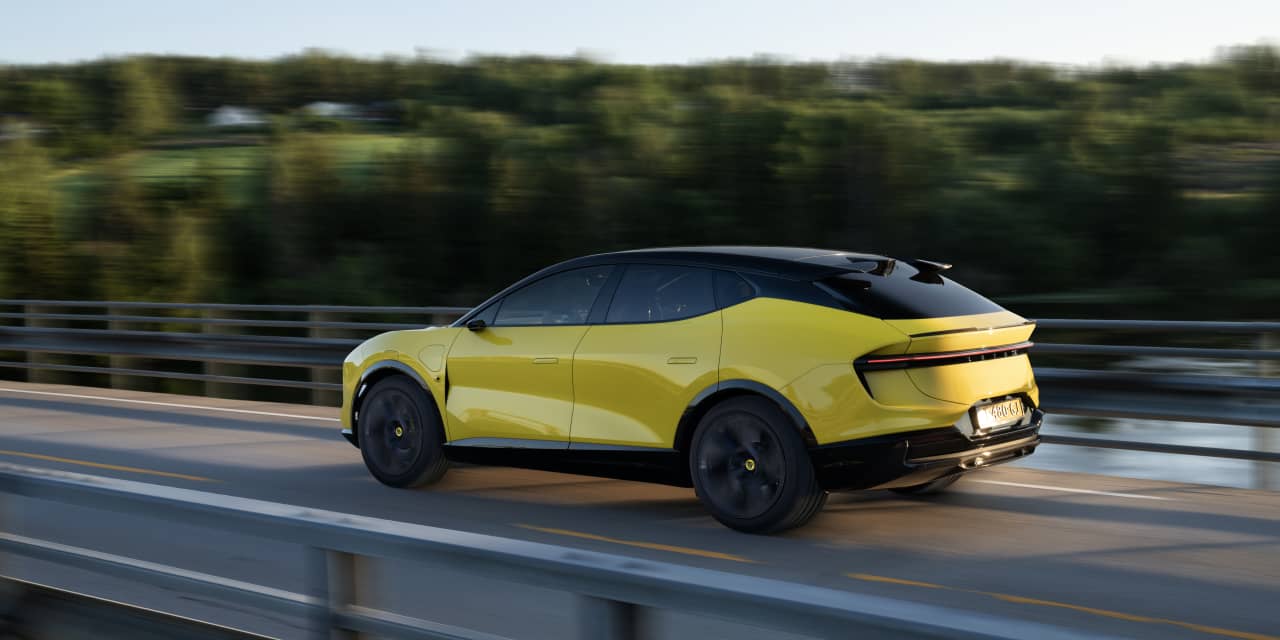Investors can now buy stock in the iconic Lotus car brand.
On Tuesday morning, Lotus Technology announced the closing of its merger with the special purpose acquisition company
L Catterton Asia Acquisition Corp.
Lotus Technology is effectively a distributor for the U.K.-based maker of Lotus Cars, and also sells its own electric-vehicle models.
The merged company’s name will become Lotus Technology, and the stock symbol will change to “LOT from “LCAA” on Feb. 23 after all the merger details are wrapped up on Feb. 22, according to the company.
Investors should expect volatility this week. SPAC-related merger stocks are often volatile around deal closings. VinFast Auto stock, for instance, went to $93 from about $10 in August 2023 shortly after its SPAC merger wrapped up. Those shares closed on Friday at $5.46.
LCAA stock surged more than 21% closing at $10.85 on Tuesday, while the
S&P 500
and
Nasdaq Composite
were down about 0.6% and 0.9%, respectively.
Also, investors should review the new corporate structure. It’s complicated, and there may be some confusion around the Lotus brand.
In 2017, Chinese auto maker Geely acquired 51% of Lotus Cars, a privately held maker of sports cars. Today, Lotus Cars has two models, the gas-powered Emira sports car, and an all-electric hypercar called Evija. The Evija—which boasts 2,000 horsepower and features used in F1 racers—is limited to 130 units and has a price tag above $2 million.
Lotus Technology—the company that is merging with L Catterton—has two models, too—both all-electric. The Eletre is a five-seat SUV, and a sedan, the Emeya, is coming later this year. Geely owns a minority stake in Lotus Technology.
While Lotus Cars makes its vehicles in the U.K., Lotus Technology makes its cars at a factory in Wuhan, China, owned by Geely. However, Lotus Technology—the listed company—sells all the Lotus-branded cars globally.
Investors can effectively think of the listed company, Lotus Technology, as an all-electric Porsche. Like
Porsche,
Lotus Technology won’t sell mass-market cars. They will sell high-end performance cars that happen to be battery-electric. The Eletre will start at over $100,000, and can cost closer to $150,000 after it’s configured.
Porsche, of course, sells a lot of cars and is profitable. Sales in 2023 amounted to 320,221, up 3% compared with 2022. Lotus Technology isn’t at that scale yet: Eletre deliveries only started in 2023.
The SPAC merger will provide an additional $288 million that Lotus Technology can use to build its business. The deal originally valued Lotus Technology at about $5.4 billion based on 613 million shares outstanding after the deal closed.
Lotus Technology has continued to raise money since the merger was announced including $870 million in November. After all the deals, there will be about 702 million shares outstanding after the merger wraps up, giving Lotus Technology a market capitalization of about $7.7 billion at recent prices. The final share count depends on how the deal wraps up. L Catterton shareholders may redeem their shares for cash.
Geely should end up owning about 16% of Lotus Technology stock, along with its controlling stake in Lotus Cars.
For comparison,
Lucid Group,
including cash and debt, is valued at about $6.2 billion, based on recent prices.
Polestar Automotive
is valued at about $5.6 billion.
Cash is important for any start-up. The long-run success of any car company, of course, depends on the quality and demand for its cars.
Write to Al Root at [email protected]
Read the full article here




